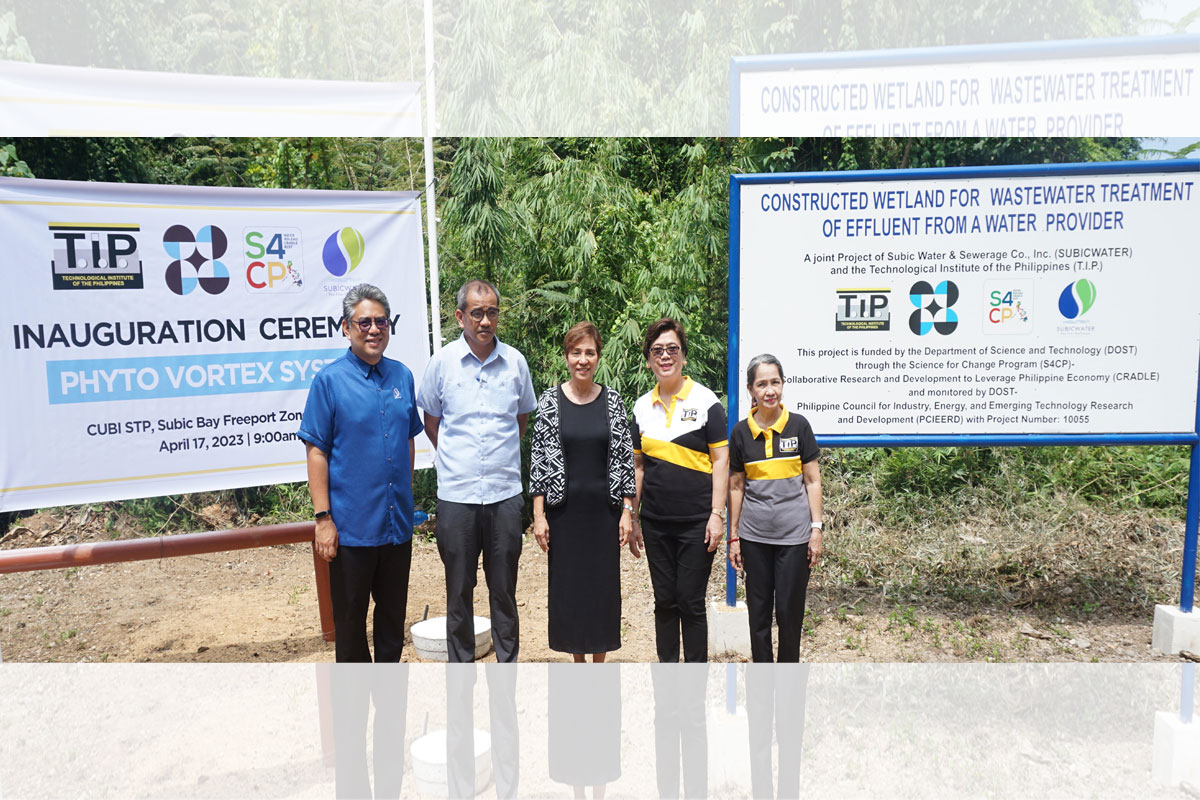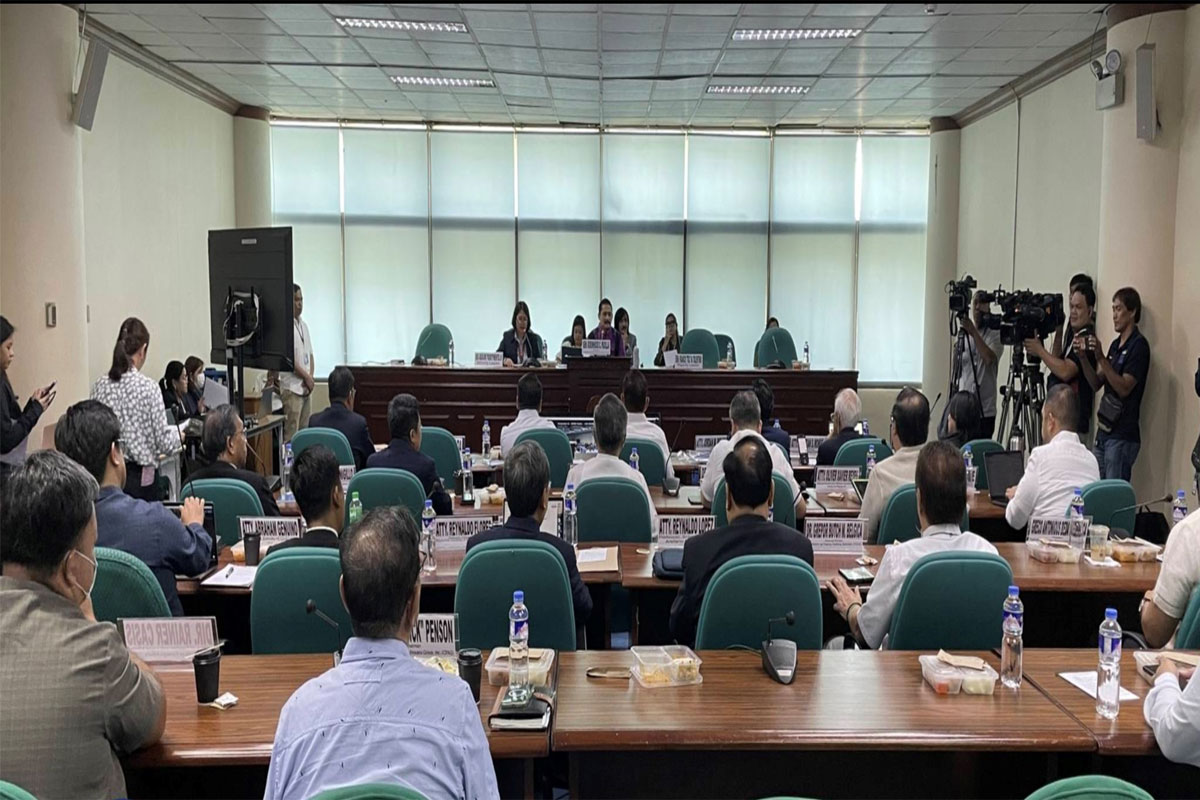 Phyto vortex system inauguration ceremony in Subic. Photo courtesy of DOST
Phyto vortex system inauguration ceremony in Subic. Photo courtesy of DOST
DOST unveils ‘plant-based’ wastewater treatment facility
THE Department of Science and Technology’s (DOST) Collaborative Research and Development to Leverage Philippine Economy (CRADLE) Program-funded research on water technology to reduce pollutants and in sewage treatment was officially inaugurated on Monday, April 17, 2023, at the CUBI Sewage Treatment Plant, in Subic Freeport Zone, Zambales.
Through the collaborative efforts of the Technological Institute of the Philippines (TIP) and Subic Water, a “phytoremediation technology” is developed using a “plant-based approach” that removes traces of fat, oil, and grease (FOG) from water sources. The project also uses vortex technology for the sewage treatment facility of Subic Water.
According to DOST Undersecretary Leah J. Buendia, “With this game-changing wastewater treatment facility, we anticipate a reduction of operational costs for industries with the use of cost-effective technology for treating wastewater effluents. Ultimately, we can look forward to an improvement in water quality and the protection of aquatic ecosystems, especially here in Subic”.
This DOST-CRADLE project entitled “Constructed Wetland for Wastewater Treatment of Effluent from a Water Provider” arose from the need of Subic Water to adhere to the Department of Environment and Natural Resources (DENR) Water Quality Guidelines and General Effluent Standards of 2016. The challenge for Subic Water is to reduce pollutants like heavy metals, ammonia, nitrates, and phosphates.
The project seeks to reduce the concentration of pollutants from effluents by an integrated constructed wetland or reedbed system. The system uses plants to absorb, uptake, and convert pollutants into a harmless form.
The successful partnership between TIP and Subic Water is supported by the DOST-CRADLE Program, which seeks to solve industry problems by funding R&D (Research & Development) projects and enabling technological advancement and innovation of local companies to support the growth of the Philippine innovation ecosystem.
Through the program, the academe, and RDI, in partnership with a Filipino company, undertake research and development to improve the company’s products, processes, and services to become more competitive in their respective industries.
Beneficiary companies under this program must provide at least 20% counterpart funding and commit to adopting the technology that will be developed. This way, research outputs from the academe are directly translated commercially to the market.

















